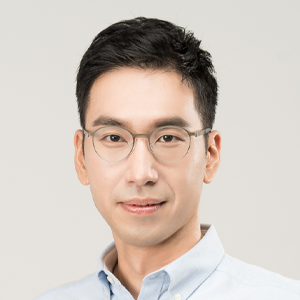The Dawn of the Vertical AI Era & The Future of Reasoning AI and AI Agents
Session Overview
While today’s LLMs provide a foundation for general intelligence, what industry and society actually need is domain-specialized, vertical AI. This talk examines why vertical AI is rising now and how accuracy-driven efficiency becomes decisive in production settings. It explores a new service paradigm taking shape across sectors through automated data generation and automated model training.
At the core of the vertical AI paradigm are reasoning AI and the evolution of AI agents. From a technical standpoint, the session traces this evolution and explains how an intelligent self-reinforcing loop—spanning generation, planning, and evaluation—forms the first step toward superintelligence. Drawing on concrete R&D from EXAONE Data Foundry and next-gen EXAONE models, the talk showcases the practical potential of AI transformation anchored in verticals.
Finally, it looks ahead to a future where vertical AI accelerates innovation across industries and reasoning AI/agents augment or replace parts of human and organizational decision-making. The session will outline the ethical and social issues we must prepare for—and how we might break through the barriers to international competitiveness.
Speaker

Lee Moon-Tae leads the Superintelligence Lab at LG AI Research, where he heads EXAONE Data Foundry, a platform that automates data generation and model training for vertical AI agents. He also directs reasoning research for superintelligence and oversees development of the next-generation EXAONE models. Since his early work on large language model (LLM) training at Microsoft Research Redmond in 2019, he has led research on generation–planning–evaluation for large models, supplied the EXAONE code model to LG affiliates, and built the ChatEXAONE service prototype. Concurrently a professor at the University of Illinois Chicago, he has published about 60 papers at top conferences including NeurIPS, ICML, ACL, EMNLP, ICLR, and AAAI, and received major honors such as the NAACL 2025 Best Paper Award and the NAACL 2024 Social Impact Award. Bridging cutting-edge theory and real-world deployment, he is opening bold new possibilities for the global competitiveness of Korean AI models.

